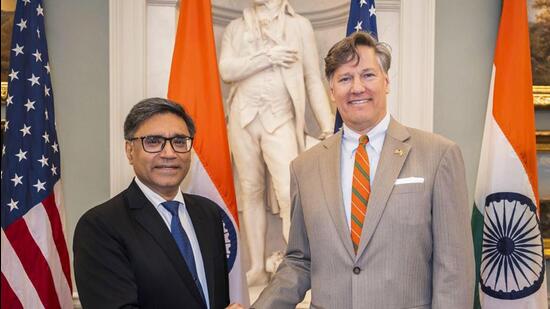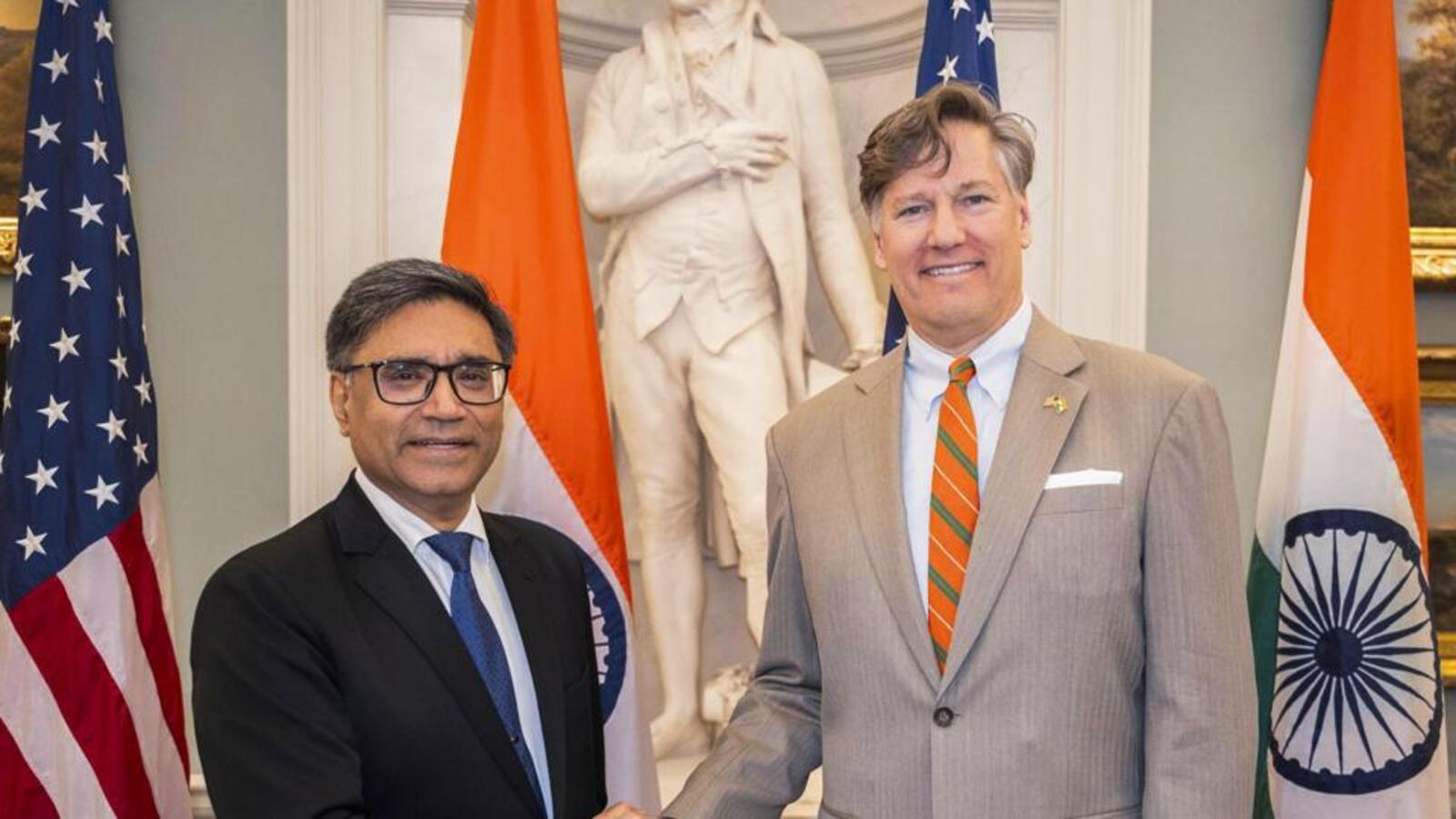Foreign secretary Vikram Misri concluded a key visit to the United States on Thursday, with bilateral trade, critical and emerging technologies as well as defence taking centre stage in the discussions. During the three-day visit, Misri met with Deputy Secretary of State Christopher Landau and Under Secretary of Commerce Jeffrey Kessler.
 Foreign Secretary Vikram Misri meets US Deputy Secretary of State Chris Landau during his visit to the United States (PTI)
Foreign Secretary Vikram Misri meets US Deputy Secretary of State Chris Landau during his visit to the United States (PTI)
“The foreign secretary also led our delegation, comprising the deputy National Security Adviser, for the inter-agency discussions on India-US Compact for the 21st century. This meeting happened in the White House and it focused on implementing the TRUST initiative, which is about critical and emerging technology partnerships. They also discussed cooperation in the area of defence and energy as well as strengthening the Quad, IMEC and I2U2,” the ministry of external affairs’ (MEA) official spokesperson Randhir Jaiswal said at a press briefing on Thursday. Jaiswal also confirmed that further topics of interest to both nations were discussed.
During the meetings, America continued its push for more market access into the Indian economy even as bilateral trade negotiations continue.
“The Deputy Secretary emphasized the importance of enhanced cooperation on migration and counter-narcotics. The Deputy Secretary and the foreign secretary also reaffirmed their shared desire to maintain regional stability and peace,” said the US State Department on the meeting between Landau and Misri.
“The Deputy Secretary reaffirmed the close partnership between the US and India, a key component of US foreign policy for the 21st century,” the statement went on to say.
Misri’s visit comes just weeks after an intense military confrontation between India and Pakistan earlier this month. On May 10, the two sides reached a ceasefire agreement which was announced by US President Donald Trump. Washington claimed credit for helping broker the ceasefire, including by offering trade access to both India and Pakistan. For its part, New Delhi has pushed back against this characterisation of how the ceasefire agreement was reached. India maintains that the ceasefire agreement was reached bilaterally after military contacts between New Delhi and Islamabad. India also rejected Washington’s assertion that India-Pakistan talks were to be held on a number of key issues, including Kashmir.
On Thursday, the MEA reiterated its position. “From the time Operation Sindoor commenced on May 7 till the understanding of cessation of firing and military action on May 10, there were conversations between Indian and US leaders on the evolving military situation. The issue of trade or tariffs did not come up in any of those discussions. The external affairs minister has also made clear that the cessation of firing was decided upon through direct contacts between the DGMOs of India and Pakistan,” said Jaiswal.
“Our position in regard to engagement with Pakistan has been clear and consistent. You are well aware of our position that any India-Pakistan engagement has to be bilateral. At the same time, we are clear that talks and terror do not go together,” he added.
TRUST or Transforming Relations Utilising Strategic Technologies (TRUST) is the governing framework of tech ties between the two countries under the Donald Trump administration and replaces the Biden-era initiative on critical and emerging technologies (iCET).
